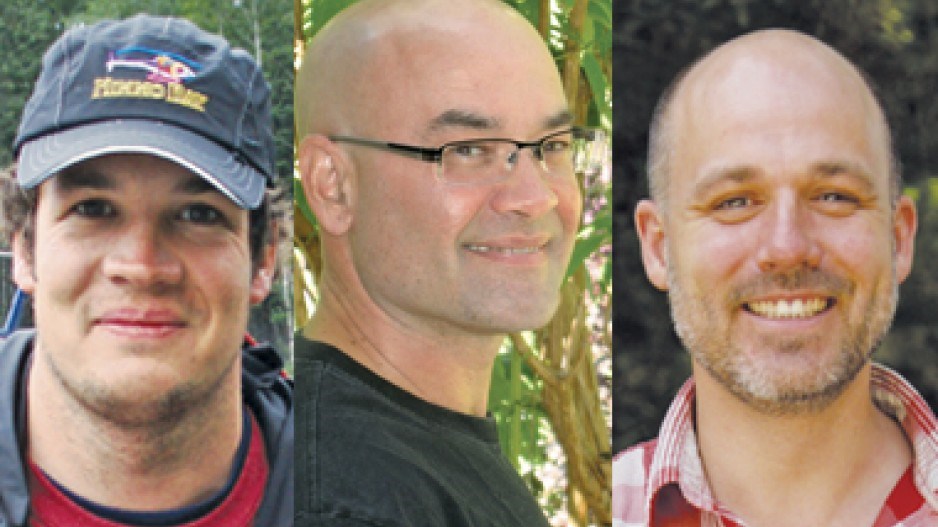Fraser Murray: Owner, Nimmo Bay Wilderness Resort
When I am looking for a team-building retreat, I look for a place that will take the team out of their daily routine.
Team building is a matter of taking a group of people and joining them together to create something new through experiential learning. People are often their most open and creative when they have the opportunity to learn something new like a skill or discovery of a new passion. The more exciting and challenging, the better. A little adrenaline can really bring a group together.
I look for a destination located in a natural setting where a certain amount of respect is apparent for the environment. I would also choose a place where there is time for relaxation and getting to know one another.
Having abundant energizing and delicious food is very important as people open up and share around the dinner table.
Lack of outside communication is a bonus. I know first-hand that minimal Internet access can do wonders for real conversation.
The ability to take over a whole space, with the venue exclusively for your use, or keeping the retreat to a small, select group are both good ways of enhancing the experience.
Having a range of activities available outside the planned time for the team offers the opportunity for individuals to grow within the group. Laughter and live music are two components that can pull a room together like nothing else.
Greg Osoba: Marketing manager, Hollyhock Lifelong Learning Centre
To decide what the most effective team-building retreat will be, it's important to start with asking what we are trying to achieve and what our goals are. Is it simply to get to know each other better, or is the retreat aimed at skill building and increasing productivity? Once a primary goal is determined, we can plan accordingly.
People within a group often respond differently to various team-building exercises and styles of facilitation. It is always a good idea to first fully consider the individual personalities within the team and where their comfort zones lie when brought together for a specific purpose. How do we bring the best out in people, ensuring everyone feels included, embraces the process and feels acknowledged and engaged? Often this will be the responsibility of a skilled facilitator to establish this as the retreat unfolds.
Here are some basic elements for achieving success.
- Outline the purpose of the retreat and agenda in advance to all team members.
- Start on time, finish on time.
- Be sure everyone feels appreciated and looked after.
- Provide good food and adequate breaks.
- No distractions. Turn mobile devices off.
- It is critical that the agenda be a mix of sitting, listening and talking, interspersed with physical activity.
- Create a record of what happened for future referral.
- Provide followup from action items developed during the retreat to all team members in a timely manner.
Finally, if resources allow, stage your retreat in a rural environment away from urban hustle and bustle. Being in nature has a way of bringing everyone together and drawing out the best in people.
Kirby Brown: CEO, the Adventure Group
In B.C. we are blessed with a plethora of locations that work brilliantly for getting your team out of the day-to-day grind and focused on something new. But the first question is what do they need to be focused on?
To do this, run through this simple, easy-to-remember process to establish what kind of team you have and what kind of experience they need. Is your team:
- Forming – a new group of people trying to figure out who's who, or an established team with new players? If so, head somewhere with comfortable standards. The right environment is fun and includes activities accessible to everyone – whale-watching, for example. This is to be an inclusive event so you need space for everyone to eat and spend time together.
- Storming – a team that is battling to decide who's in charge and what the priorities are? Privacy and expert facilitation trump location. Choose a soothing environment and expert facilitators with lots of unstructured down time for people to connect with each other, disappear to think things through and recover from intense, conflict-laden conversation. Don't go too far from home base.
- Norming – a team that's getting into the groove together and now has the capacity to set its sights on bigger objectives? Inspire them with a dramatic location and push their boundaries with thrilling activities – treetop courses, whitewater rafting or great big ziplines.
- Performing – a team that's winning, achieving and needs recognition? Forget about facilitation and splurge on individuals. Offer a selection of rewards so people can pick the recognition that suits them – from spas to off-roading. Whistler is a great choice for the latter two scenarios.




